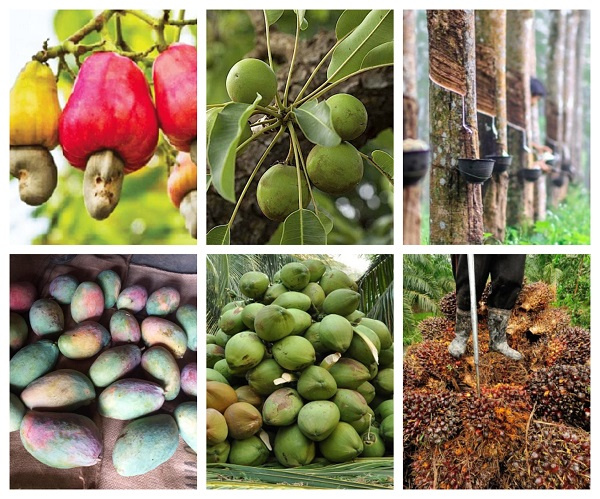The World Bank has granted a US$ 100 million facility to boost production and improve the value chains of cashew, coconut, and rubber, Deputy Chief Executive Officer of Operations at Tree Crop Development Authority (TCDA) Foster Boateng has revealed.
The facility is a partnership with the government under a six-year funding initiative known as the Tree Crop Diversification Project.
Speaking to B&FT at the maiden Ghana Africa Sustainable Commodities Initiative National Platform Meeting in Accra, Mr. Boateng said a portion of the money will be used by the TCDA to improve institutions and build systems within the tree crop sector; and build capacity of value chain actors such as the Cashew Council, Federation of Association of Ghanaian Exporters (FAGE), Coconut Federation and the Rubber Associations.
Also, part of the money will be used to tackle environmental issues, child labour and address key requirements of global buyers, developmental partners and governments.
The TCDA will also use a percentage of the funds to build and manage a digitisation platform that enables the Authority to register and track value chain actors to boost regulation and resource mobilisation.
“A chunk of the money will be utilised to support the Cocoa Research Institute in conducting research into cashew production; and the Oil Palm Research Institute, Crop Research Institute among others, including capacity building for farmer-based organisations,” Mr. Boateng said.
The National Platform Facilitator for the Africa Sustainable Commodities Initiative (ASCI), Afua Serwah-Prempeh – who facilitated the meeting, said the original intention for the platform was to focus on sustainable production of oil palm.
“After CoP 27 in Egypt, we have sought to expand the platform’s scope to include other relevant commodities and tree crops. This meeting is basically held to discuss and decide which commodities to include in the new agenda, and how the platform will be funded,” she said.
Key resolutions of the meeting include the agreement to give relevance to commodities that significantly contribute to afforestation, and a revision of national principles to reflect new commodities which are essential to the TCDA.








